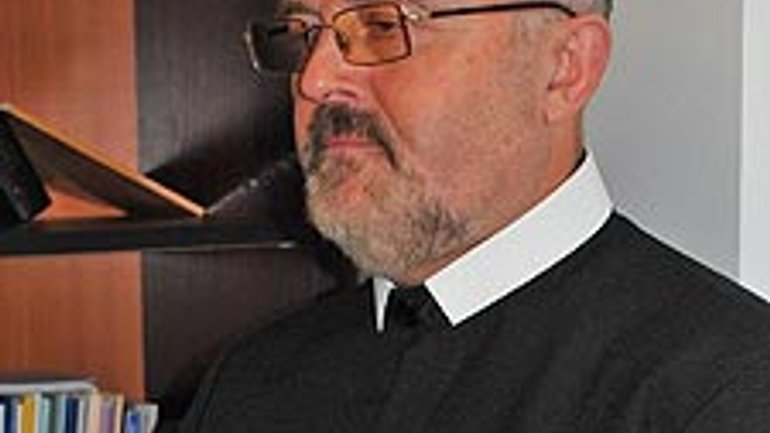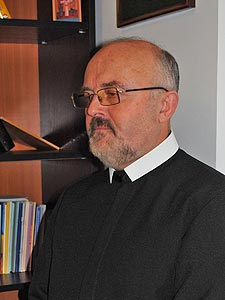RISU Holds Web Conference 'What Is Dognal Group and Who Is Behind It?'


![]() The syncellus in matters of the laity and in matters of monasticism of the Lviv Archeprachy of the Ukrainian Greek Catholic Church (UGCC), Fr. Vitalii Dutkevych of the Order of St. Basil the Great, is a guest at the web conference of RISU "What Is the Dognal Group and Who Is Behind It?" which is being held on December 2-8. He explained that "dognalism is a response to problems caused by sociological rather than religious or internal church factors, and in this context it requires a certain reconceptualization."
The syncellus in matters of the laity and in matters of monasticism of the Lviv Archeprachy of the Ukrainian Greek Catholic Church (UGCC), Fr. Vitalii Dutkevych of the Order of St. Basil the Great, is a guest at the web conference of RISU "What Is the Dognal Group and Who Is Behind It?" which is being held on December 2-8. He explained that "dognalism is a response to problems caused by sociological rather than religious or internal church factors, and in this context it requires a certain reconceptualization."
"For the dognalists do not point to real problems of church life but only invent such problems to cover and justify its sectarian activity."
Giving an analysis of why this phenomenon did spread and why its members received support from the church in the beginning of their activity in Ukraine, Fr. Vitalii noted: "Five to six years ago certain spiritual persons had some sympathies for the Dognal Group even though the spiritual leadership of our order warned about the danger. For some time, these warnings were the 'voice crying in the wilderness.' Perhaps, in the beginning, there was some sympathy for this group because of the enmity towards the Basilian Order and aspirations to harm it. As of today, that sympathy for dognalists has faded away."
As for the ways of combating the Dognal Group, the priest said that the priority is prayer, but he also stressed that it is necessary today to set up a competent committee without delay to consider the danger of new movements provoking the rise of such sects as the "Witnesses of Dognal" and decisively respond to such phenomena.
"Our church encounters such an aggressive phenomenon as dognalism for the first time. One must always be ready for such phenomena and be smarter. Our church survived many trials and will, undoubtedly, survive the infection of dognalism. This trial should be taken as one allowed by God and even as a means of God's purification. The use of force will never settle the problem. One should note that innocent victims fell into the net of the sect, and one should pray for them with special care," added the priest.
The subject of the conference provoked an active interest of the readers of RISU. In particular, many of them drew analogies between the attempts to divide the UGCC and the activity of the Basilian Order.
"The Basilian Order is very sorry that many problems in our church originated from its members, both former and present ones. We, the Basilians, do not deny that and are sincerely sorry. Fr. Protoarchimandrite Vasylii (Kovbych) and Fr. Protohegumen Yoanikii (Chverenchuk) repeatedly apologized for these bad actions of their members. It is true that a part of the members of our order is traditionally oriented in the matters of rite regarding some practices of the Latin rite. After twenty years since the emergence from the underground it is difficult to change certain stereotypes in the way of thinking that were held by these monks in our church until 1946," responded Fr. Vitalii to such analogies and added that one should not be ill with "Basilianophobia."
He explained in detail the modern realia and noted that the leadership of the order "is aware of the reproaches made against it," and that there is no misunderstanding between the hierarchy of the UGCC and the leadership of the Basilian Order. The priest called to stop the creation of stereotypes and to remember that Metropolitan Andrey Sheptytsky also came from the Basilian Order. According to the priest, one should wait for the "time of harvest" as the novices of the Krekhiv Monastery may now include a future Sheptytsky.









